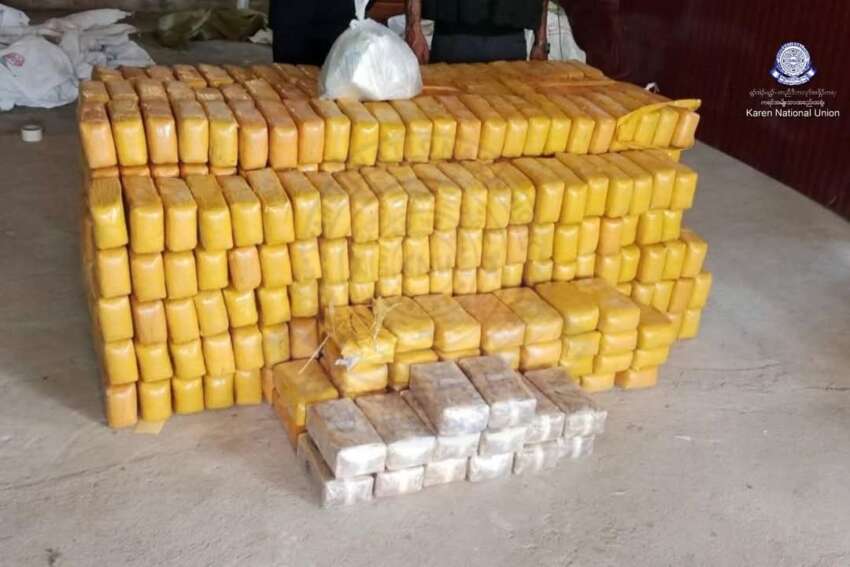
The Karen National Union (KNU) has announced it will take severe legal action under Kawthoolei Law following the seizure of over 5 million stimulant pills in the Thaung Yin River along the Thai-Myanmar border in KNU Brigade 7 territory. Padoh Saw Taw Nee, Central Executive Committee member and spokesperson for the KNU, made this statement regarding the significant drug seizure. The operation took place on April 27 at 7:45 AM when the Karen National Liberation Army (KNLA), which maintains security along the Thaung Yin River border area, intercepted a suspicious vessel. Upon inspection, they discovered 599 packages containing 5,590,000 WY stimulant pills.
KNU spokesperson Padoh Saw Taw Nee emphasized that narcotics provide no benefit to the youth and stressed the importance of unified action among all organizations in combating drug trafficking. He explained that individual efforts by separate organizations would not be as effective, given the varying conditions across different territories. Success in anti-drug operations requires coordinated action among all organizations, particularly due to the complex nature of cross-border trafficking routes and regional differences. The KNU has expressed its readiness to collaborate with neighboring countries in suppressing cross-border drug trafficking, production, distribution, and trade within KNU-controlled territories and along the Thai-Myanmar border.
The KNU has confirmed that the current drug seizure case will be prosecuted under Kawthoolei Law. Furthermore, the KNU’s Anti-Narcotics and Human Trafficking Committee, along with the Karen National Police Force (KNPF), will continue their investigation to identify and take action against all individuals involved in the crime, including perpetrators, organizers, and traders in the distribution network. This comprehensive approach demonstrates the KNU’s commitment to combating drug trafficking in their territories and their determination to work with regional partners to address this serious issue affecting local communities, particularly the younger generation.



